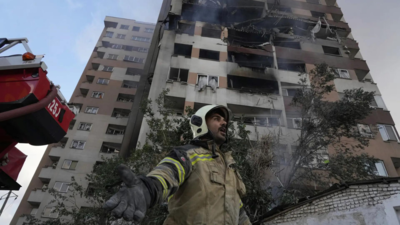
For four decades, Iran poured billions of dollars, weapons and military minds into a grand project: building up a network of anti-Israel militias known as the "Axis of Resistance" that would join Iran if a war with Israel broke out.Friday's strikes underscored just how degraded that axis has become over the past year, with few expecting those armed groups to meaningfully respond to the Israeli aggression, experts say. In the clearest sign of that weakened stance, Hezbollah, the Lebanese militant group seen as Iran's most powerful proxy, condemned the attack but stopped short of vowing military action in response - a notable omission from a group that has long served as the central pillar of the axis. The Houthis in Yemen also made no mention of responding militarily. "The axis hasn't been fully destroyed, but it has been diminished beyond the point of return," said Mohanad Hage Ali, a senior fellow at Carnegie Middle East Centre in Beirut. "It has been transformed into an axis of sitting ducks waiting for the next Israeli strikes rather than taking initiative and pushing Israel into the defence."Iran also lost a key ally in Dec, after Syrian rebels, whom Hezbollah fought, toppled Bashar al-Assad's govt in Syria. Among Iran's proxies, still intact are Iranian-backed Iraqi militias and the Houthis. "Now the Houthis are the most capable and forthcoming of the axis, but at the same time, (Israeli) strikes have had an impact on their capacity," said Ali.

 17 hours ago
51
17 hours ago
51




























 English (US)
English (US)